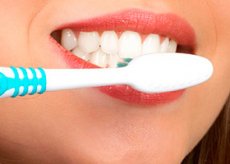Medical expert of the article
New publications
Preventing heart disease can be prevented by regular brushing of teeth
Last reviewed: 02.07.2025

All iLive content is medically reviewed or fact checked to ensure as much factual accuracy as possible.
We have strict sourcing guidelines and only link to reputable media sites, academic research institutions and, whenever possible, medically peer reviewed studies. Note that the numbers in parentheses ([1], [2], etc.) are clickable links to these studies.
If you feel that any of our content is inaccurate, out-of-date, or otherwise questionable, please select it and press Ctrl + Enter.

As demonstrated by a new experiment by scientists, regular thorough cleaning of teeth reduces the risk of myocardial infarction and stroke. The experiment consisted of a diagnostic examination of 22 thousand people over 50 years old, representing the population of Taiwan. Those who had their tooth enamel professionally cleaned in the last year almost never suffered a stroke or heart attack over the next 7 years. Getting rid of tartar and plaque on teeth, or so-called deep cleaning, leads to an improvement in the condition of not only the enamel, but also the gums and periodontal pockets. And, as is known, plaque is an accumulation of microorganisms that can provoke gum disease and damage to the enamel. Many dental problems are, one way or another, associated with the presence of plaque on the teeth. Plaque is bacteria and their waste products, food particles, leukocytes, protein molecules from salivary secretions, dead cells. Mineralization processes lead to plaque being transformed into tartar, which can damage the mucous membrane and even change the structure of the enamel coating. Information about the experiment was published in the new issue of the American Medical Journal. Experts do not provide clear evidence that brushing can prevent heart disease. However, they draw a parallel with the previous experiment, which was conducted under the supervision of Dr. Zu Ying Chen, a representative of the Taipei Veterans Administration Hospital. In the course of this work, it was proven that gum disease increases the risk of developing coronary pathologies. Since gum disease is a consequence of microbial invasion, scientists suspected that plaque on teeth can provoke a chronic inflammatory process, and then - the development of a heart attack or stroke. Can we be sure that regular visits to the dentist will help prevent dangerous complications? To answer this question, a research team led by Professor Chen analyzed the medical records of nearly 22,000 patients over 50 years old. About every second patient had had their teeth cleaned in the last year. Over the next seven years, only 1.6% of them had a heart attack., and 9.9% had a stroke. The specialists also took into account such factors as the presence of chronic diseases, hypertension, etc. However, they did not take into account the patients' body weight, bad habits, dietary habits, hereditary predisposition - therefore, many consider such results to be incomplete, and rightly so. In any case, whether the researchers are right or not, it is necessary to pay close attention to oral hygiene, as well as to the health of the body as a whole. "Insufficient oral hygiene can negatively affect health, sooner or later, in one way or another," explains Professor Chen, who presented the results of the work done at a symposium of the American Heart Association.


 [
[